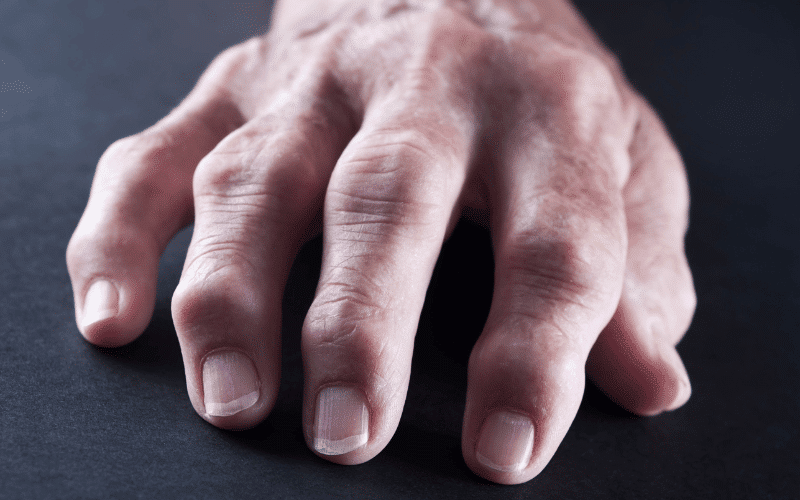Symptom 8. Rheumatoid Nodules: A Distinctive Feature of Rheumatoid Arthritis

Rheumatoid nodules, firm bumps under the skin, are a unique and telling feature of RA. These nodules result from the inflammatory process of RA, where immune cells clump together, forming these distinctive lumps. While they may occur at any stage of RA, they are more common in severe or long-standing cases.
Typically, rheumatoid nodules develop near the affected joints, especially around the elbows, knuckles, and knees. However, they can occur anywhere in the body, including the heart and lungs, a testament to the systemic nature of RA.
Though rheumatoid nodules are generally painless, their presence can cause discomfort, particularly when they occur in weight-bearing areas or places where they rub against clothing or footwear. In such instances, they can interfere with normal activities, adding to the burden of RA.
Interestingly, the presence of rheumatoid nodules often signals more aggressive disease. People with these nodules tend to have higher levels of rheumatoid factor, a marker of RA, in their blood, implying more severe disease activity. Monitoring for the presence of these nodules, therefore, can offer valuable insight into the disease’s progression and severity.
Lastly, rheumatoid nodules highlight the wide-ranging impacts of RA. Beyond the joints, RA can affect the skin and other organs, reflecting its far-reaching implications for the body. The presence of these nodules, thus, serves as a tangible reminder of the pervasive nature of this disease. (8)